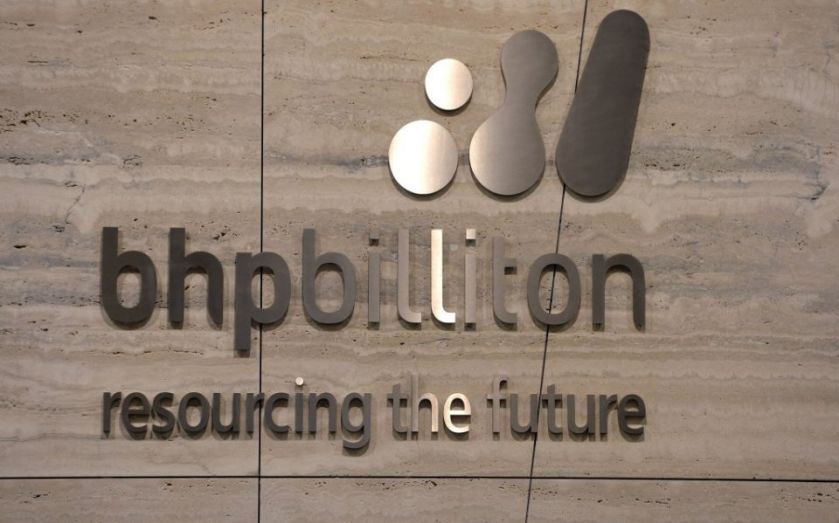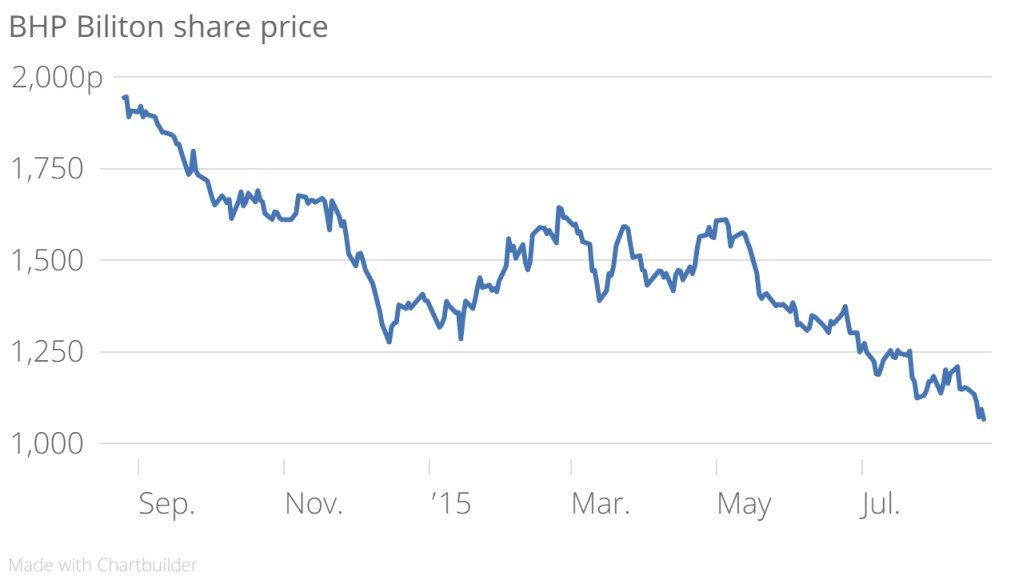BHP Billiton share price up six per cent despite pre-tax profits falling 61.7 per cent year-on-year

BHP Billiton's share price was trading up to six per cent up in morning trading, leading the FTSE 100, despite reporting a significant fall in pre-tax profits for the year to the end of June, missing analysts' expectations, amid falling commodity prices.
The figures
BHP Biliton reported pre-tax profits of $8.67bn (£5.50bn), 61.7 per cent lower. The Financial Times suggested analysts expected $12.81bn in per-tax profits.
Net profit fell even further, by 86.2 per cent to £1.91bn from £13.8bn the year before, while underlying net profit fell 51.6 per cent to £6.4bn and revenues fell 22 per cent year-on-year to $52.27bn. Ouch.
However, the world’s biggest miner by market capitalisation increased its full year dividend by two per cent for the year to 124 cents per share.
Having plunged 8.7 per cent yesterday, the company's shares were higher this morning, rising 5.4 per cent to 1,023p, suggesting investors were just relieved the figures weren't even worse.

Why it's interesting
In July the company slashed production guidance for all of its core products except iron ore, projecting a 12 per cent fall in output in 2016 compared to 2015.
Read more: BHP Billiton beats expectations but disappoints with guidance
And it looks to be a tough year ahead: iron ore is the only one of BHP’s four key “pillar” commodities forecast to grow in volumes. The company has been battling low prices in petroleum and copper recently, as combination of slowing demand in China and widespread oversupply puts pressure on the mining industry. In the statement the company lowered its forecast for Chinese steel demand.
The company said a decline in the average realised price of iron ore was the "major contributor" to its woes, reducing underlying earnings before interest and tax by $9.5bn. Meanwhile, weak prices for petroleum, copper and coal businesses also hit underlying earnings.
Read more: Miner BHP Billiton hit by weak debut of newly listed South32
There was a glimmer of hope: "Focus on operational excellence continued to yield significant results in the 2015 financial year. We reduced costs faster than expected in all our major businesses," it said.
And following the de-merger of South32, BHP said it is almost exclusively focused on its large petroleum, copper, iron ore, coal and potash assets, affording a simpler portfolio that will allow for productivity improvements that "underpin value in the company".
What BHP Biliton said
BHP Billiton chief executive Andrew Mackenzie, said:
In the short term we expect ongoing economic reforms in China to contribute to periods of market volatility. And, while we remain confident in the long-term outlook for commodities demand as emerging economies continue to urbanise and industrialise, we have lowered our forecast of peak Chinese steel demand to between 935 million tonnes and 985 million tonnes in the mid 2020's. This backdrop will favour low-cost producers with economies of scale.
Importantly, we do not require the same level of investment to grow as in the past. Improved productivity can further stretch the capacity of our existing operations to increase volumes at very low cost.
Beyond this, we continue to reduce development costs within our project portfolio. However, we remain focused on value and will only approve projects when the time is right.
In short
BHP Biliton profits have collapsed due to a slowdown in China and concerns about oversupply in its four "pillar" commodities: petrol, copper, coal and iron ore.